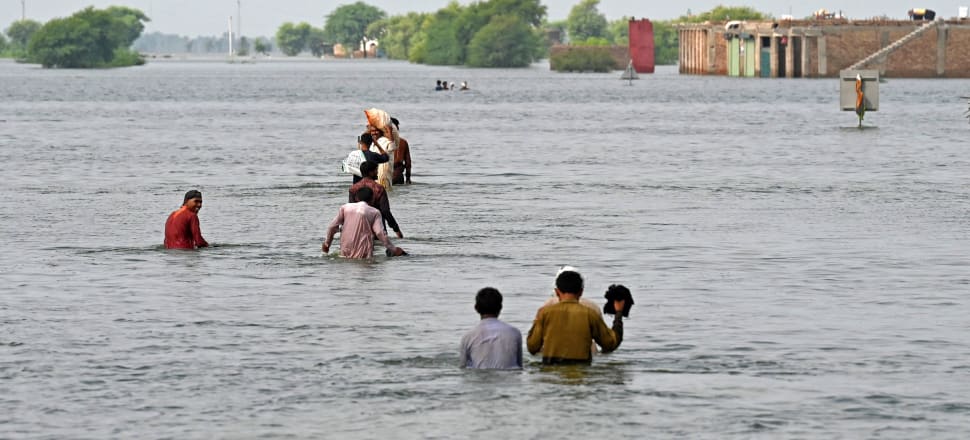
Pakistan emits less than 1 percent of the world's greenhouse gases, but is suffering some of the worst effects of climate change
In May, Reuters' Pakistan correspondent, New Zealander Charlotte Greenfield, visited the city of Jacobabad.
Dubbed 'the world’s hottest city', Jacobabad was at that point in the midst of a devastating heatwave.
"It hit 51 degrees Celsius while we were there," Greenfield says.
"All the river beds and canals had dried up. The biggest issue was there just wasn't enough water, there was no water in the city."
It's estimated the heat wave killed at least 90 people. But now, just a few months on, Pakistan is in the throes of another, even more catastrophic natural disaster: the worst floods the country has seen in decades.
"One-third of the country is underwater," says Tayyaba Khan, who was born in Pakistan before moving to New Zealand with her family as a baby.
"A significant part of the Pakistani population has been affected by the flooding. We are estimating anywhere between 30 million to 40 million."
The general consensus is that the flooding's intensity is down to a confluence of factors.
The heatwaves from earlier this year play a big part - Pakistan, a mountainous country, has thousands of glaciers within in its borders.
It's thought the heatwave caused many of them to melt more quickly than usual, sending millions of litres of water into hills and valleys.
Hot air also tends to hold more moisture, so when the monsoon season came along in June, the air that flowed into southern Pakistan was unusually moisture-laden.
The intensity, longevity, and scale of the heavy rainfall has also contributed to the scale of the disaster. Pakistan is a developing nation, and its resources to deal with such sustained and widespread flooding are limited.
At least 1400 people have died in the floods - many of them children - and the associated costs will reach into the tens of billions of dollars.
And it's likely that these sorts of events will be more common as human-caused climate change continues to intensify natural disasters.
This raises the stark inequity of which countries will be on the frontlines of climate change: Pakistan, despite its huge population, emits less than 1 percent of the world’s planet-warming gasses.
Greenfield says this has caused Pakistan's climate change minister, Sherry Rehman, to raise the idea of reparations paid by wealthy, more industrialised nations, to less industrialised nations in a more precarious position.
Find out how to listen and subscribe to The Detail here.
You can also stay up-to-date by liking us on Facebook or following us on Twitter.








